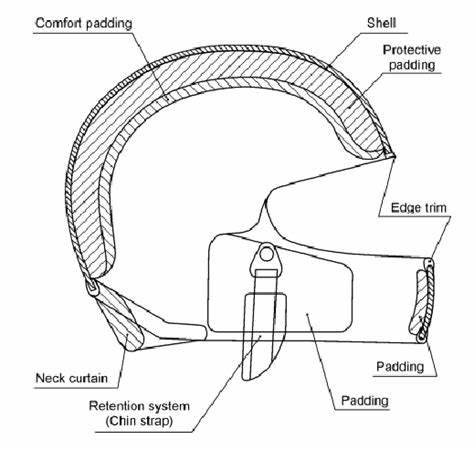
How to fit a Helmet.
Things to keep in mind when fitting an on-road or off-road helmet.
We had quite a few customers come in on Saturday, look at the helmet wall, grab a helmet, throw it on their head and say, “Yup it fits”.
Yes, maybe they have bought multiple helmets before. Maybe they are brand loyal and have taken the right steps before this purchase or maybe they simply didn’t know all the tests you can do to ensure you are buying the right size.
That’s what we are here today to talk about. How to fit a helmet.
First off, it’s important to say that not every brand will fit the same, not every model will fit the same within a brand, and not every liner will fit the same. Take your time and make sure you’re purchasing the right one.
Ok, let’s get into it.
Step one: Measure your head. That’s a good place to start. You want to measure your head, approximately an inch above the eyebrows with a soft tape measure. Take the measurement and look up the brand you are looking to buy and find their helmet size chart. Some may have specific ones per model.
Step two: Take whichever size it tells you you are and start there. Once the helmet is on, one of the first tests is to look at yourself in the mirror. There are three things to look for:
- Eye-level. Make sure your eyes are where they’re supposed to be. Your eyes need to line up with the helmet’s eye placement to ensure optimal visibility.
- With that, your nose should also line up well with the chin piece. If your nose Is taller than the chin portion, you are not utilizing the anti-fog technologies most helmets have.
- What we call “chipmunk cheeks”. This is hard to find the happy medium, but you should feel the inside of your cheeks up against your teeth, not allowing you to chew gum. However, too tight is not good either. If your cheeks are getting pushed up too much, causing your eyes to wrinkle, it’s too tight.
Step three: Take your hand and place it behind the helmet, pushing it forward. Take your finger and try to slip it in between the middle of your forehead and the liner in the helmet. Can you do it? If you just nodded, RED FLAG. You should be able to get the tip of your fingernail in between the two. No more, no less.
Step four: Grab the chin part of the helmet and move it left, right, up, and down. Is your face moving with it? Or is the helmet moving around your face? Now, just move your jaw from side to side. Same question. The helmet must be tight enough that it controls the movement of your face. Think about the top reason you buy a helmet. Safety. If you get in a crash, you don’t want room in between you and your protection.
After you perform all those tests think about if the helmet is too big or too tight. If you can’t decide, try a different thickness for your cheek pads. Maybe the shell is correct, but your cheek pads are the issue.
Not all of these tests will lead to a clear answer to "does this helmet fit me?" However, if you're in-between two sizes, these will often lead you to the right decision!
Hopefully, this helps a little. Video to come!

